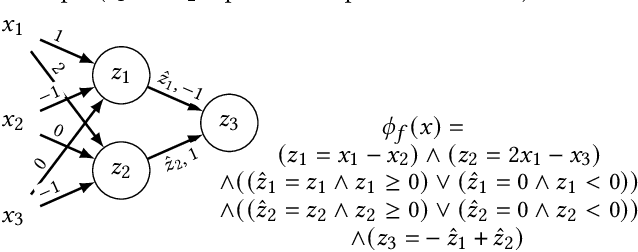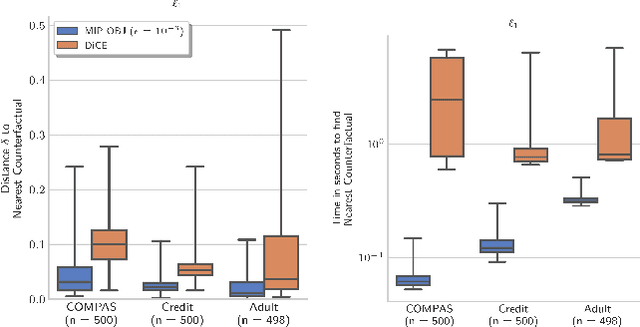Scaling Guarantees for Nearest Counterfactual Explanations
Paper and Code
Oct 10, 2020



Counterfactual explanations (CFE) are being widely used to explain algorithmic decisions, especially in consequential decision-making contexts (e.g., loan approval or pretrial bail). In this context, CFEs aim to provide individuals affected by an algorithmic decision with the most similar individual (i.e., nearest individual) with a different outcome. However, while an increasing number of works propose algorithms to compute CFEs, such approaches either lack in optimality of distance (i.e., they do not return the nearest individual) and perfect coverage (i.e., they do not provide a CFE for all individuals); or they cannot handle complex models, such as neural networks. In this work, we provide a framework based on Mixed-Integer Programming (MIP) to compute nearest counterfactual explanations with provable guarantees and with runtimes comparable to gradient-based approaches. Our experiments on the Adult, COMPAS, and Credit datasets show that, in contrast with previous methods, our approach allows for efficiently computing diverse CFEs with both distance guarantees and perfect coverage.
 Add to Chrome
Add to Chrome Add to Firefox
Add to Firefox Add to Edge
Add to Edge